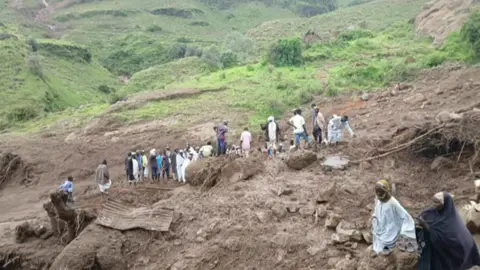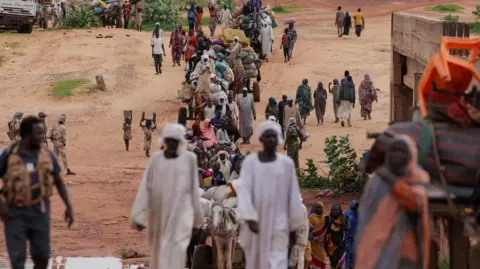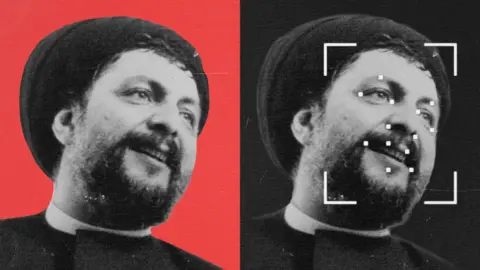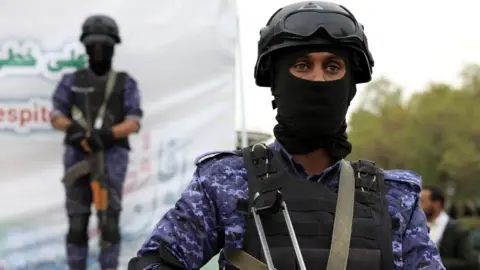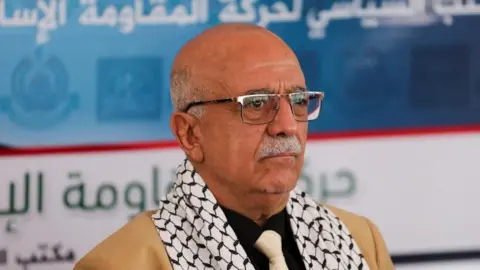In the wake of the Syrian regime's recent collapse, families in Lebanon are grappling with a painful legacy of unresolved disappearances dating back decades. The plight of those missing, particularly since the late 1980s during Syria's military intervention in Lebanon, has come back into the spotlight as relatives express their anguish and search for closure.
One poignant case is that of Hoda al-Ali, who dedicated 34 years of her life searching for her son, Ali, who was arrested at just 18 years old by Syrian forces. Her relentless pursuit, which spanned years of grueling searches and obstacles, came to an end with her passing. Her son’s disappearance became emblematic of countless similar stories of loss, leaving families in a state of perpetual mourning and uncertainty.
When images surfaced of a potentially familiar figure being released from a prison after the abrupt fall of President Bashar al-Assad, the al-Ali family felt a surge of optimism. However, their hopes were dashed when the man turned out to be someone else, and the search quickly transitioned back to despair. Moammar, Ali's brother, has taken up the mantle of his mother's quest, holding on to cherished photographs and memories as he declares, “We still have hope he is alive.”
As Syria’s prison doors opened in the chaotic aftermath of regime change, the outpouring of individuals desperate to find missing loved ones sharply contrasted with the silence endured by families in Lebanon. Many are left waiting, pining for answers amidst bureaucratic indifference and often feeling abandoned in their grief.
The stories of loss are not just personal—they are woven into the very fabric of Lebanon's complex history with its neighbor. In a region still grappling with the scars of the past, the search for the truth behind these disappearances has become a critical part of the narrative that defines both countries. Families continue to advocate for transparency and accountability, as the hope for resolution remains, however fragile it may be.
One poignant case is that of Hoda al-Ali, who dedicated 34 years of her life searching for her son, Ali, who was arrested at just 18 years old by Syrian forces. Her relentless pursuit, which spanned years of grueling searches and obstacles, came to an end with her passing. Her son’s disappearance became emblematic of countless similar stories of loss, leaving families in a state of perpetual mourning and uncertainty.
When images surfaced of a potentially familiar figure being released from a prison after the abrupt fall of President Bashar al-Assad, the al-Ali family felt a surge of optimism. However, their hopes were dashed when the man turned out to be someone else, and the search quickly transitioned back to despair. Moammar, Ali's brother, has taken up the mantle of his mother's quest, holding on to cherished photographs and memories as he declares, “We still have hope he is alive.”
As Syria’s prison doors opened in the chaotic aftermath of regime change, the outpouring of individuals desperate to find missing loved ones sharply contrasted with the silence endured by families in Lebanon. Many are left waiting, pining for answers amidst bureaucratic indifference and often feeling abandoned in their grief.
The stories of loss are not just personal—they are woven into the very fabric of Lebanon's complex history with its neighbor. In a region still grappling with the scars of the past, the search for the truth behind these disappearances has become a critical part of the narrative that defines both countries. Families continue to advocate for transparency and accountability, as the hope for resolution remains, however fragile it may be.











